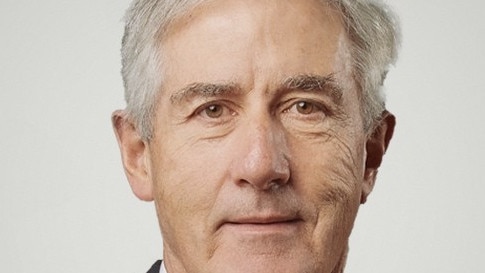Directors’ peak body will advocate for Constitutional recognition
The directors’ organisation will push for a ‘respectful conversation’ on the referendum.

The peak body representing 50,000 company directors across the nation will promote the Yes case at the forthcoming referendum on the proposed Voice to parliament.
The decision by the Australian Institute of Company Directors creates a potentially powerful business force in the lead-up to the vote and emerges as individual corporations grapple with whether to take a public stance on the referendum.
Given the breadth of coverage of the AICD, its advocacy of the Voice is significant.
Chair John Atkin, pictured below, says while the peak body will not fund a campaign, “there wouldn’t be a significant organisation in Australia, whether listed, government or non-listed or charity that didn’t have one of our members involved in its governance”.
He argues the AICD has a leadership role to promote a national conversation on the issue.
The peak body will likely run discussion groups and education activities while supporting and encouraging members to take leadership roles on the Voice in their own companies.
Atkin says: “More than anything else we will be trying to promote a respectful conversation that avoids overstatement of what the opportunity may be and avoids scaremongering on issues that aren’t real (such as the idea the Voice would become a third chamber).
He says the latest Director Sentiment Index, run twice a year by the AICD, shows 63 per cent of members agree national reconciliation is a governance priority.
Some members have argued the AICD should not take a position on a political issue, but in fact, Atkin says: “We take positions on political issues all the time. It’s how we do it (that matters).
“We should be prepared to take principled positions on issues.
“I’m sure we have people who would be critical of the stance the AICD has taken on gender equality in ASX boardrooms (for example).
“But it’s about whether you take a narrow view of the AICD’s role.
“I’ve heard senior directors saying Qantas shouldn’t have taken a position on marriage equality … (They forget) the broader social context in which Qantas operates.”
Atkin announced the AICD’s position at its recent annual general meeting, saying it would support key elements of the Uluru Statement – the establishment of a Voice through constitutional recognition, and then the process of truth telling and treaty through a Makarrata Commission.
This would “strengthen Australian systems of government and governance and mark a practical step towards meaningful national reconciliation. As Australia’s leading governance body, we will make a constructive contribution to advancing the Statement from the Heart as a governance issue.”
Atkin tells The Deal that, like others in his generation he feels “shame in terms of how we, as a society, dealt with this issue (of Indigenous rights). I think some people are defensive about it, because they’re not prepared to acknowledge the shame”.
He has been on a learning curve after a lifetime of knowing the “big story” of white engagement with Indigenous Australians but not much detail.
“Personally, I see the Uluru statement as a remarkably generous invitation from First Nations people … to work together with them towards a better future,” he says.
“If you understand the injustices that have been visited on our First Nations people (since 1788), particularly that part of the statement that asserts traditional sovereignty, but does it alongside the crown … I think that’s remarkably generous and we should be responding to that invitation in the spirit in which it was given to us.
“That’s the opportunity we have as a country, that’s the spirit with which the AICD is responding.”
Atkin recalls hearing comments made by Alfred Deakin in a 1901 letter as a moment when he understood more of our historical approach to the assimilation of Indigenous Australians: “Little more than a hundred years ago Australia was a Dark Continent in every sense of the term. There was not a white man within its borders. Its sparse native population was black as ebony. There are now some 60,000 of their descendants remaining and about 80,000 coloured aliens added ... The Aboriginal race has died out in the South and is dying fast in the North and West even where most gently treated ... A handful of British with little more than nominal occupation of half the continent is so stubbornly British in sentiment that it proposes to tolerate nothing within its dominion that is not British in character and constitution or capable of becoming Anglicised without delay.”
Atkin says the AICD has much to learn from understanding the concepts and values of Indigenous governance.
He and chief executive Mark Rigotti led a delegation to the Garma festival in Arnhem Land this year “to understand from the Gumatj people, their focus on education, and their governance and stewardship principles”.
He says the AICD has a role in developing Indigenous leadership and extending its mentoring programs to remote areas, helping to develop better policy settings around governance of Indigenous corporations, and “learning and improving our own concepts of governance and stewardship, by incorporating elements of Indigenous culture”.
Says Atkin: “This is our opportunity to bring together the strengths of the oldest continuing culture, the diversity and strength of our multicultural community and the rule of law and come up with a distinctive Australian identity.”




To join the conversation, please log in. Don't have an account? Register
Join the conversation, you are commenting as Logout